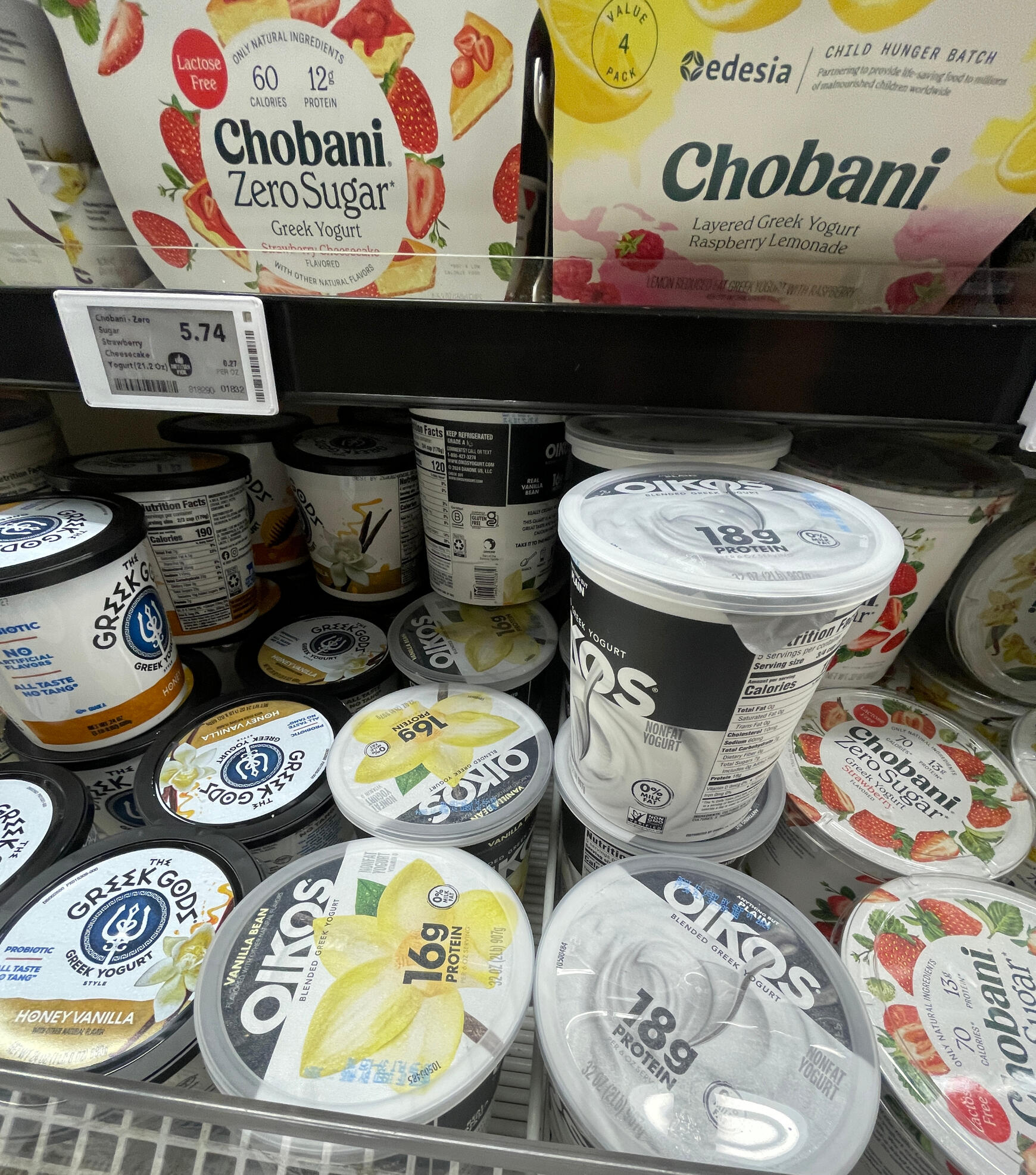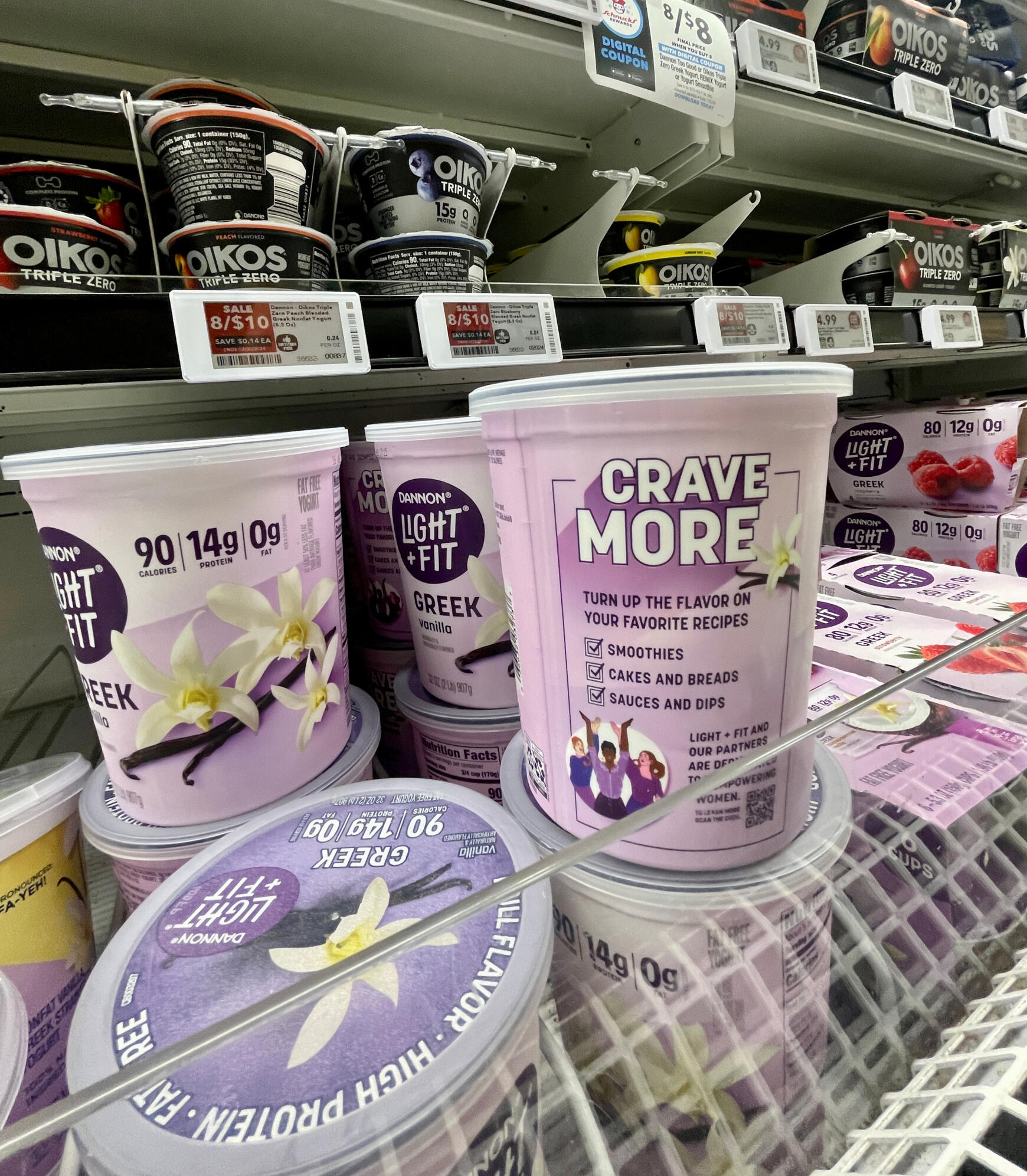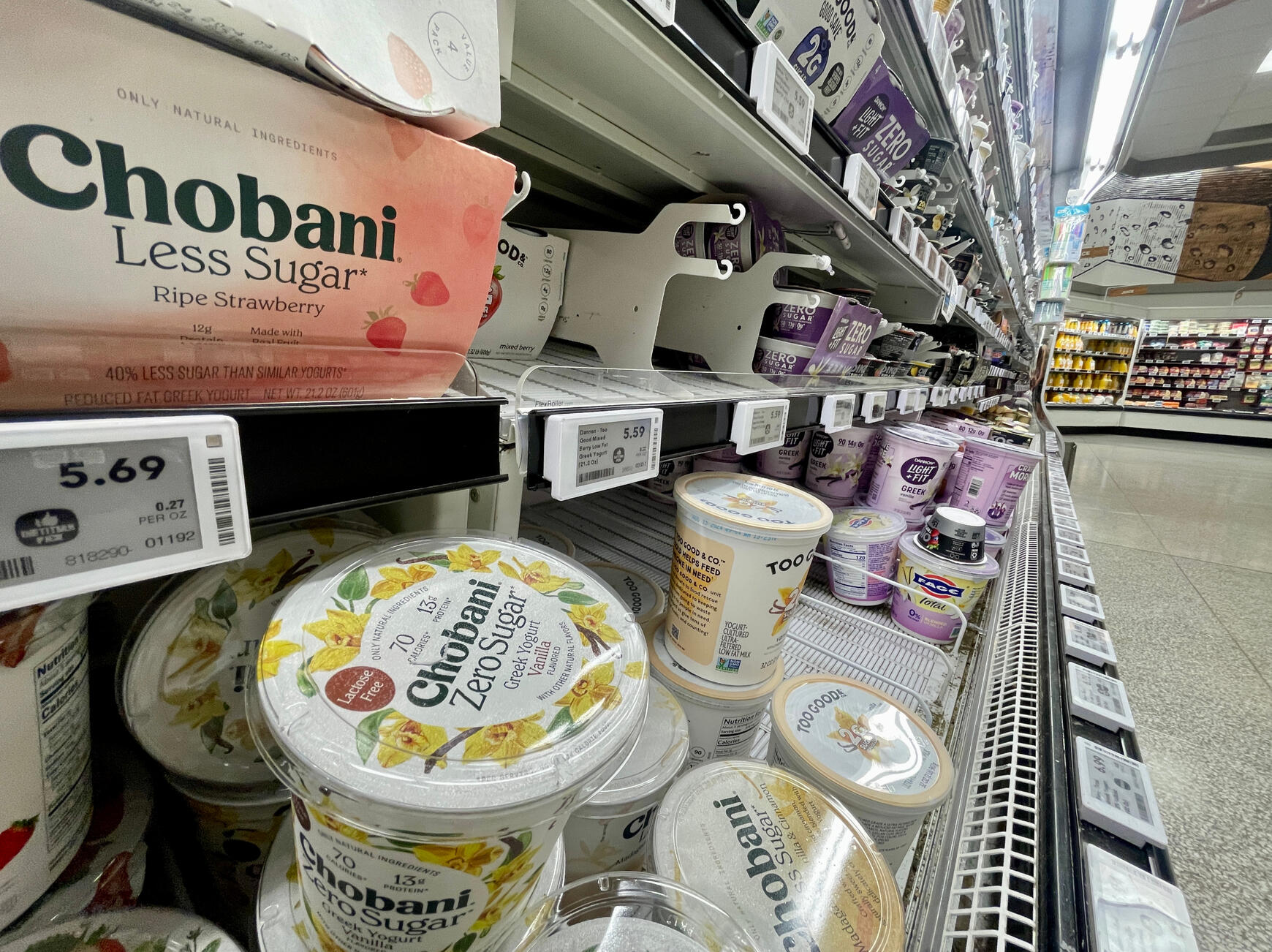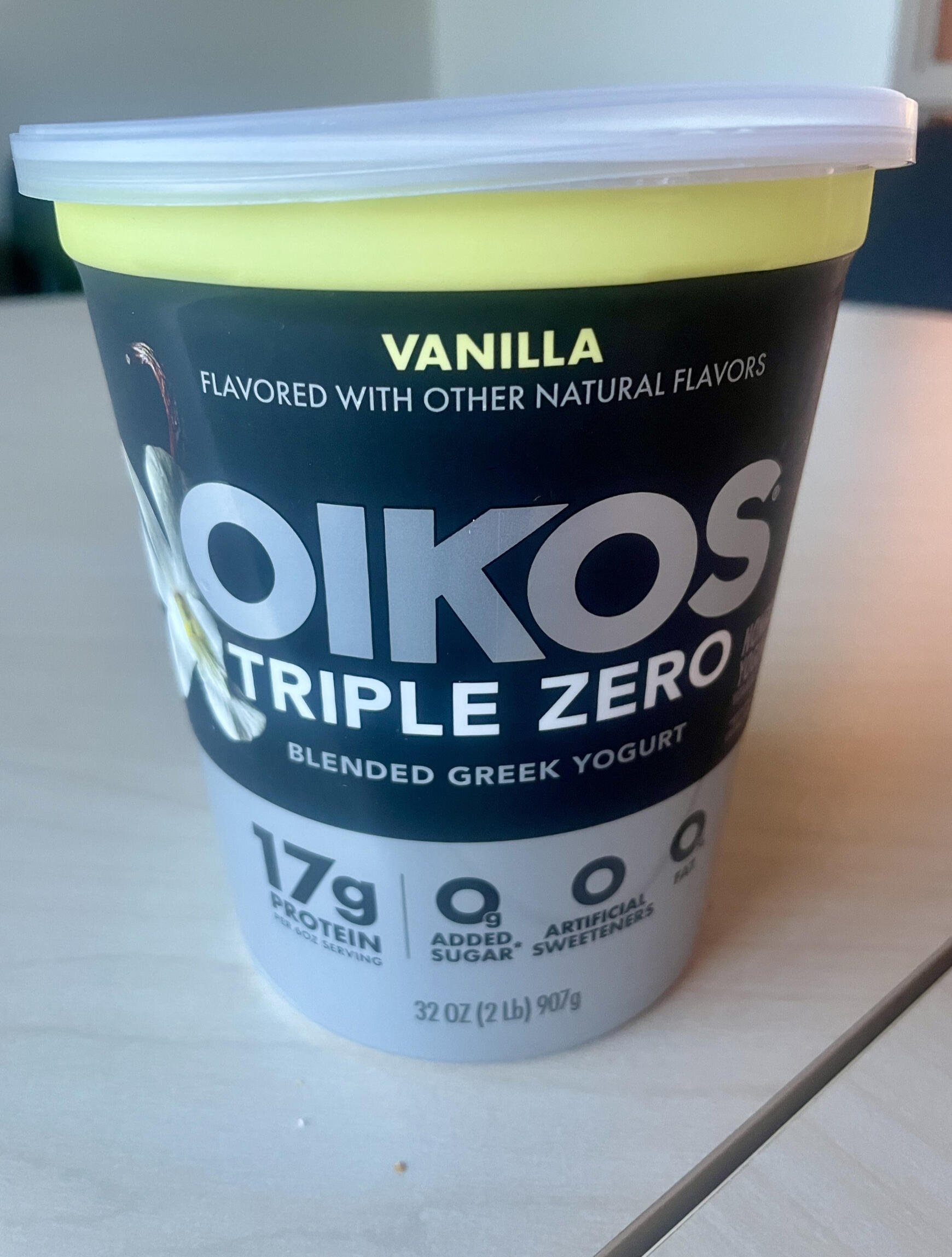Can Greek Yogurt Boost Muscle, Cut Fat?
Hi, my name is Joe, and I'm researching the effects of yogurt consumption on body composition. My goal is to reduce body fat while building muscle mass.


The Evolution of Yogurt
The dairy section of your grocery store now offers an impressive array of yogurt options, including several new brands of low-calorie, high-protein varieties. Each serving contains as little as 70 calories while providing around a quarter of your daily protein needs.


An experiment
Like many people, I find calorie restriction challenging and want to maximize the results of my gym efforts. I'm exploring the use of low-fat Greek yogurt as an alternative to protein powder for lean muscle development. The recent introduction of no-sugar Greek yogurt varieties has made this approach more feasible. These products are typically high in protein and low in calories, promoting satiety and potentially aiding in weight management.My experiment involves replacing one meal daily with Greek yogurt while maintaining my exercise regimen, which includes cycling and weight training. I'm investigating whether this combination will effectively alter my body composition by reducing fat and increasing muscle mass.Information on no-sugar yogurts is currently limited, as they are a relatively recent addition to the market. This website serves as a platform for my ongoing research, and I'll be regularly updating it with new findings and insights. I invite you to follow along as I explore the potential benefits of incorporating Greek yogurt into a fitness-focused diet.

Feeling Full: The Power of Protein
One of the key benefits of high-protein yogurt is its ability to promote satiety. The high protein content helps you feel full and satisfied for longer periods, which can be particularly beneficial for those trying to manage their weight or reduce overall calorie intake.Protein slows down digestion and helps regulate hunger hormones, contributing to increased feelings of fullness. Greek yogurt, with its even higher protein content, can be especially effective in this regard. By incorporating high-protein yogurt into your diet, you can better manage your appetite and potentially reduce overall calorie consumption without feeling deprived.



Yogurt's healthy history
The connection between yogurt and healthy eating isn't new. Ancient civilizations in the Middle East and India recognized yogurt's healthful properties, using it both as a milk preservative and a remedy for digestive issues.In the early 20th century, scientist Elie Metchnikoff developed a theory linking the consumption of fermented milk products, like yogurt, to longevity. He observed that Bulgarians, known for their longevity, consumed large quantities of yogurt. While his specific theories haven't been fully supported by modern science, Metchnikoff's work sparked global interest in yogurt and its potential health benefits.Throughout the 20th century, scientific studies began to highlight yogurt's benefits, particularly its probiotic content. The discovery of probiotics' role in supporting digestive health and overall well-being further cemented yogurt's reputation as a health food.

Taste tests
In the past, yogurt was primarily known for being low in protein and high in sugar - tasty, but not particularly healthy. Today, however, the landscape has changed dramatically. Many types of yogurt now boast high protein content, which is beneficial for muscle and bone health. However, not all high-protein yogurts are created equal when it comes to taste and texture.Some yogurts, while high in protein, have an odd taste and a thick, pasty texture. Top-ranking yogurts in taste tests include Fage Total for its tangy and bold flavor, Siggi's Whole Milk for its rich taste, and Icelandic Provisions Skyr for its indulgent texture and 15 grams of protein. The winner in many tests is Chobani Zero Sugar, which contains no sugar or artificial ingredients and offers a delightful vanilla flavor with 11 grams of protein. This yogurt is often praised for its perfect texture and authentic taste.



So many choices
When shopping for high-protein, low-calorie yogurts, some popular brands to consider include Chobani Zero Sugar, Oikos Triple Zero, and Dannon Light and Fit. Chobani Zero Sugar stands out for its low calorie count, high protein percentage, and inclusion of six live and active yogurt cultures. It's also free from sugar, artificial sweeteners, preservatives, and gluten.While taste is subjective, I find Chobani's offerings to be flavorful and satisfying. The combination of great taste, nutritional profile, and feeling of fullness makes it a popular choice for those seeking a healthy snack or meal replacement.

Greek vs. Regular Yogurt: What's the Difference?
The main difference between Greek and regular yogurt lies in the straining process. Both start with milk and live cultures, but Greek yogurt undergoes an additional straining step to remove the whey (the liquid part of milk). This results in Greek yogurt's thicker, creamier texture compared to regular yogurt's runnier consistency.This straining process also affects the nutritional profile. Greek yogurt generally contains more protein, while regular yogurt often has more calcium. However, be cautious of added sugars in both types. Opt for plain varieties to compare their natural content and customize the sweetness with your own fruit or sweetener if desired.Greek yogurt's high protein content makes it an excellent choice for a satisfying snack or as a substitute for sour cream in savory dishes. Regular yogurt, with its lighter texture, works well in smoothies and parfaits. The best choice depends on your personal taste preferences and nutritional goals.


Yogurt: Your Secret Weapon for Weight Loss and Muscle Gain
Packed with protein, low on fat, and teeming with probiotics, yogurt isn't just a snack—it's your ticket to a healthier you. Whether you're aiming to shed pounds, bulk up, or just treat your taste buds, this creamy delight has got you covered. So ditch the diet fads and spoon up some culture. Your body will thank you, and your waistline might just send a friend request.

Stir Up a Conversation
Got a burning yogurt question? Or just feeling cultured? Drop us a line! We're always churning with excitement to hear from fellow yogurt enthusiasts. Don't be shy – let's whip up a conversation that's as smooth as Greek yogurt and as fun as adding sprinkles to your parfait. Reach out today, because life's too short for bland communication!
Thank you!
Thanks for scooping into our yogurt website! We hope you found it cultured and informative. Stay healthy and keep it creamy – your gut will thank you later!
Health concerns

Is yogurt an ultra-processed food?
Well, it depends on the type of yogurt you buy. Most flavored yogurts are classified as ultra-processed foods due to the variety of ingredients added to them. But, some plain yogurts contain minimal ingredients and are not considered ultra-processed.If you're looking to avoid ultra-processed foods then purchase plain yogurt. The ingredients are likely only pasteurized milk, cream, and live active yogurt cultures—simple, natural components. However, many flavored yogurts, even those marketed as having natural ingredients, include additives that categorize them as ultra-processed.These additives include soy lecithin, an emulsifier derived from soybeans that improves texture, and guar gum, a thickening agent extracted from guar beans. Additionally, flavored yogurts often contain natural flavors and caramel color, which are used to enhance taste and appearance.A spokesperson from Chobani tells the Wall Street Journal that, "The natural flavors and functional ingredients...extend the shelf life, and improve the stability of our naturally-nutrient dense Greek yogurts."While these additives may serve practical purposes, they also push flavored yogurts into the ultra-processed category.



Lactose Intolerance and Yogurt
For the nearly 70% of the world's population who are lactose intolerant, dairy products can be problematic. However, many of the new high-protein yogurts are lactose-free, making them accessible to a wider audience.Greek yogurt, in particular, contains less lactose than regular yogurt, milk, or ice cream. Its live and active cultures help break down lactose, making it easier to digest for many lactose-intolerant individuals. Greek yogurt typically contains less than 1 gram of lactose per ounce and is rich in nutrients like protein, calcium, zinc, and vitamin B12.For those with severe lactose intolerance, there are lactose-free Greek yogurt options available that still offer the same nutritional benefits. If you're lactose intolerant, you may find that you can tolerate small amounts of lactose, and a dietitian can help you find the right options for your level of tolerance.


Yogurt May Lower Diabetes Risk
The FDA has allowed yogurt makers to claim that eating yogurt can reduce the risk of Type 2 diabetes, despite limited evidence. Danone North America requested this "qualified health claim" in 2018 and received approval in March.The FDA acknowledges some support but not significant scientific agreement for this claim, which means yogurt labels must include disclaimers. Qualified health claims, allowed since the early 2000s, permit limited scientific support as long as labels are clear.
Weight Loss

Replacing one meal with yogurt
A study published in the Journal of Obesity tested a dinner meal replacement plan on overweight adults. After 12 weeks, participants who replaced dinner with a 388-calorie meal showed improvements in weight, body fat, and blood sugar levels. On average, the participants lost approximately 8.6 pounds over trial.This is the equivalent of eating a few servings of high-protein yogurt for one meal. The research suggests that replacing one meal a day can help with weight loss and health, without extreme dieting. This approach might be easier for people to stick with long-term compared to stricter diets.


Calorie Restriction and Its Benefits

These high-protein, low-calorie yogurts align well with the principles of calorie restriction, a dietary approach that has gained attention for its potential health benefits.Calorie restriction involves reducing caloric intake without compromising nutrient quality. Several studies credit this practice with increasing longevity, overall health, and mental well-being.Research indicates that calorie restriction may slow down the aging process by improving the body's energy utilization and helping prevent diseases such as diabetes. It has also been associated with reduced risk of heart disease and cancer, lower inflammation levels, and improved cellular repair. Additionally, calorie restriction can aid in weight management by reducing body fat and may improve brain function, potentially offering protection against neurodegenerative diseases like Alzheimer's.While calorie restriction can be challenging for many people, high-protein yogurt can make it more manageable. The high protein content helps you feel full while reducing your overall calorie intake. Replacing one or two meals a day with yogurt can aid in weight loss without leaving you feeling deprived or "hangry."

The Power of Probiotic Cultures
Beyond helping you feel full, the probiotic cultures in yogurt offer additional health benefits. Chobani, for instance, includes cultures like S. thermophilus, Bifidus Regularis, Lactobacillus casei, and Lactobacillus rhamnosus. Each of these cultures plays a unique role in supporting digestive and overall health.Lactobacillus bulgaricus, a strain found in many yogurts, has been associated with longevity and improved gut health. Studies have shown that certain probiotic strains can boost the immune system, particularly in elderly individuals, by increasing natural killer cells and improving immune markers.S. thermophilus, while not typically used alone as a probiotic treatment, is crucial in fermenting milk and supporting the survival of other beneficial bacteria in the gut. It helps create the texture and aroma of yogurt and aids in breaking down lactose.Other strains like Bifidus Regularis have been shown to improve digestion and regularity, while Lactobacillus casei and Lactobacillus rhamnosus may help with lactose intolerance, diarrhea prevention, and immune system support.

Building Muscle


Greek Yogurt Enhances Training, Cuts Fat
High-protein yogurt isn't just for snacking—it's a game-changer for weight training. Ditch expensive protein powders and opt for this natural, healthy alternative. A recent study published in Frontiers in Nutrition demonstrates the power of post-workout yogurt consumption. The research shows that eating yogurt after exercise can significantly improve strength, muscle thickness, and body composition.The study compared Greek yogurt, rich in protein and bacterial cultures, to a carbohydrate-based placebo pudding over 12 weeks. While both groups showed improvements, the yogurt-eating group experienced significantly greater gains.The yogurt-consuming bodybuilders saw more substantial improvements across the board. They experienced greater gains in total strength, particularly in the biceps brachii muscle, and a more significant increase in fat-free mass. Additionally, unlike the placebo group, they reduced their body fat percentage.These findings underscore the effectiveness of Greek yogurt as a post-workout food. Its protein-rich, nutrient-dense profile appears to enhance the effects of resistance training more potently than a carbohydrate-based alternative.

Protein powders vs. yogurt
Greek yogurt and protein powders are both valuable protein sources, each with distinct nutritional profiles and concentrations. A 7-ounce (200-gram) serving of plain, non-fat Greek yogurt typically contains approximately 20 grams of protein. This makes Greek yogurt an effective option for increasing protein intake, with the added benefits of calcium and probiotics. However, it's important to note that Greek yogurt also contains natural sugars and carbohydrates, which may be a consideration for those closely monitoring their macronutrient intake.
Protein powders, on the other hand, offer a more concentrated protein source. These include whey isolate, whey concentrate, and various plant-based options. A typical 30-gram scoop of whey protein isolate provides 23-27 grams of protein, with minimal carbohydrates or fats. This higher protein density makes powders particularly suitable for those requiring a rapid, high-protein intake, especially post-workout. While protein powders excel in protein content per serving, they lack the additional nutritional benefits found in whole foods like Greek yogurt, such as vitamins, minerals, and beneficial bacteria. The choice between Greek yogurt and protein powder ultimately depends on individual nutritional goals, dietary preferences, and lifestyle factors.Greek Yogurt• Standard Greek Yogurt (Plain, Non-Fat):
• Protein: Approximately 10-12 grams per 100 grams (or about 20 grams per 7 oz. serving)Low-Fat Greek Yogurt (Plain):
• Protein: Approximately 8-10 grams per 100 grams (or about 17 grams per 7 oz. serving)Popular Protein Powders• Whey Protein Isolate: Typically 23-27 grams per 30-gram scoop• Whey Protein Concentrate: Typically 18-25 grams per 30-gram scoop• Casein Protein: Approximately 24 grams per 30-gram scoop• Plant-Based Protein (e.g., Pea Protein, Soy Protein): Generally 15-25 grams per 30-gram scoop


How Much Protein Do You Need?
Your protein needs depend largely on your lifestyle and activity level. People with active lifestyles, particularly those who engage in strength training, require more protein for muscle building and repair.For moderately active adults, the general recommendation is around 0.36 grams of protein per pound of body weight daily (or about 0.8 grams per kilogram). However, if you're a gym enthusiast or athlete, you might need up to 0.68 grams of protein per pound of body weight (around 1.5 grams per kilogram).It's important to note that while protein powders and supplements are available, it's generally better to get protein from whole food sources like eggs, yogurt, legumes, nuts, lean meats, and fish. These foods provide not just protein but also other essential nutrients.Most people can meet their protein needs through diet alone. However, certain groups like older adults, pregnant women, and some athletes might benefit from increased protein intake. If you're unsure about your specific protein needs, consulting a doctor or registered dietitian can help you determine the most suitable intake for your goals and health status.

Yogurt's rich history
Yogurt has a rich and storied history, evolving from a simple fermented milk product into a global culinary staple with countless variations. Originating in Western Asia and the Middle East, yogurt's name is derived from the Turkish word "yoğurmak," meaning to thicken or curdle. The product likely came about when nomadic herdsmen discovered that milk stored in animal skin pouches fermented into a thick, tangy food that lasted longer than fresh milk. This early form of yogurt became a staple in the diets of various cultures, cherished for its nutritional value and shelf stability.The basic process of making yogurt has remained relatively unchanged for thousands of years. Milk is heated and combined with specific bacterial cultures, most commonly Lactobacillus bulgaricus and Streptococcus thermophilus, which ferment the milk by converting lactose into lactic acid. This process not only thickens the milk but also gives yogurt its characteristic tart flavor. Historical records from as early as 6000 BCE, particularly in Indian Ayurvedic texts, reference the health benefits of yogurt, highlighting its long-standing importance in human diets.Yogurt's journey to the West and its rise in popularity can be traced back to the early 20th century. In 1904, Bulgarian microbiologist Dr. Stamen Grigorov identified Lactobacillus bulgaricus as the key bacterium in yogurt fermentation. His work laid the foundation for further research by scientists like Élie Metchnikoff, who linked the consumption of yogurt with longevity, particularly among Bulgarian peasants. This association spurred a health craze in Europe, where yogurt became a sought-after food for its supposed life-extending properties.In the United States, yogurt's popularity surged in the late 20th century, albeit with significant modifications to suit American tastes. Initially, Americans found plain yogurt too tart, leading to the development of sweetened versions with fruit on the bottom and later, dessert-inspired flavors. This adaptation helped yogurt gain a foothold as a breakfast and snack food, particularly among health-conscious consumers.



Greek yogurt's rise
The early 2000s marked the rise of Greek yogurt, a thicker, protein-rich variety that quickly dominated the market. Greek yogurt's success was driven by its high protein content and perceived health benefits, resonating with Americans' growing interest in protein-rich diets. Following the Greek yogurt boom, other international styles, such as Icelandic skyr and French and Australian yogurts, entered the market, offering consumers a broader range of textures and flavors.In recent years, the yogurt industry has continued to evolve, embracing trends like plant-based and high-fat yogurts. Nondairy yogurts made from almond, coconut, and other plant milks have gained popularity among consumers seeking alternatives to traditional dairy. Meanwhile, high-fat yogurts cater to those following low-carb, high-fat diets like keto, positioning yogurt as both an indulgence and a health food.Today, yogurt is more than just a food; it's a cultural phenomenon with deep roots in the culinary traditions of many countries. From the cold soups of Bulgaria to the yogurt-marinated dishes of India, yogurt continues to be a versatile and beloved ingredient worldwide. As the yogurt market expands and diversifies, its rich history and enduring appeal show no signs of waning.
About
Yes, I made a website dedicated to yogurt. The dairy aisle at your local grocery store is now filled so much yogurt. Every time I walk by it in the section I see someone on their phone trying to determine the best option for them.I've gone down this rabbit hole too. There are not a lot of great resources to help you decide between yogurts. Some are low-calorie, others boast no sugar, and some contain a lot of protein. There wasn't a website with all of the resources to help you make an informed decision, so I made one.This is still a work in progress and I plan on expanding this site with more research and better tools. Please reach out to me with specific questions or requests.My job is covering local news and I'm not selling anything here. Hopefully, this site can help make your trip to the grocery store a little easier and your diet healthier.Joe M.

Contact
Got questions about the great yogurt vs. protein powder showdown? Or maybe you just want to chat about the creamy goodness of your favorite flavor? Either way, I'm all ears (and spoons). Drop me a line, and let's dive into the delightful world of yogurt together.Joe M.
